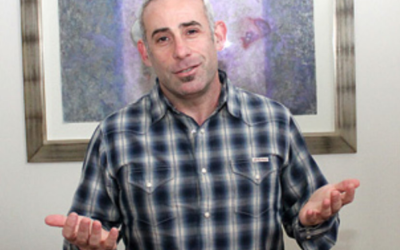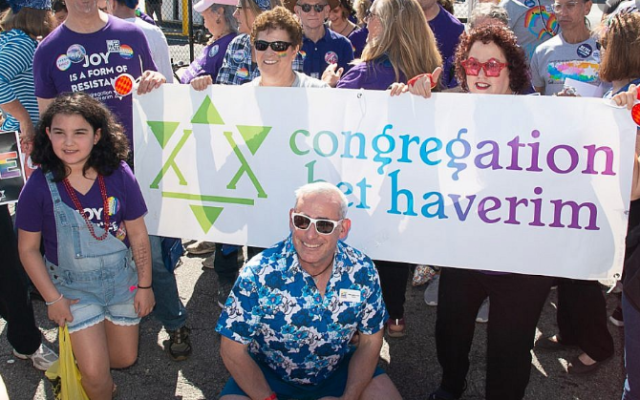Rabbi Creates Facebook Page for Spiritual Leaders
Atlanta rabbi creates comfortable space for colleagues.
Recently Rabbi Josh Lesser of Congregation Bet Haverim thought it might be helpful to have a place where rabbis and other spiritual leaders could meet, exchange ideas and generally find a sympathetic ear during the coronavirus pandemic. So he set up a Facebook page just for religious leaders. He was astonished by the response.
AJT: How did you get the idea that the spiritual leaders, who are always being asked for help, needed help, themselves?
Lesser: I had this moment of recognition that to do this work well, that clergy needed a safe space to be able to share ideas, but also to process what was happening to us in a way so that we could be better present to our communities.
A friend of mine, Dr. Letitia Campbell, who is responsible for moral leadership at Emory’s Candler School of Theology, is my co-administrator. We’ve been reaching out to make sure that there are other moderators representing other faith traditions.
AJT: How is it working out?
Lesser: I thought that maybe I would create a group that would attract 150 or 200 of my friends and their friends to kind of create this online community. I never imagined that it would. You know, we’re close to 6,500 folks now. And it grows every day.
AJT: In practical terms how is the group functioning?
Lesser: This group is functioning as a very creative, brilliant network of good ideas, cross-pollinating between different faiths, and when there need to be specific faith threads, those are happening as well. So, while there’s a lot of Passover threads on Jewish spaces, there are Passover threads on this space. So that is one piece. The other piece is that people are sharing different aspects of what’s happening in their communities, sometimes asking for specific advice.
AJT: What’s an example of an issue one rabbi or spiritual leader might discuss with another?

Lesser: One of the most profound posts was from a person who was a humanist, who was really wrestling with the kind of ledge of hopelessness that he sits on. I would say that over 200 people responded. Even I responded that when I find myself on the ledge of despair or hopelessness, I practice a sense of humility. I have to cultivate the sense that I really, truly don’t know it all. And so I was able to say, there is so much that I do not know that’s unfolding.
AJT: And yet that’s not something most of us hear very often from religious leaders.
Lesser: I think that there’s a trap that we set up with one another and with our congregants and that clergy walk into. What I try to pivot towards is that we may not have all the answers, but we will accompany you on the journey. We will hold your questions. I want to encourage strong laypeople to be able to have a relationship with their own wisdom rather than be dependent on spiritual leaders for “the answer.”
AJT: So perhaps this is a good time to ask you for an answer to a question a person might have this Passover as they are confined at home, alone. If they were sitting at your virtual seder, what would you say about the meaning of freedom today?
Lesser: The mystics and Jewish tradition talked about an outer liberation, which is the story of Egypt, of the Jews leaving Egypt from slavery. But there’s also the inner liberation. And I believe that this year is the year for us to explore our inner landscape if we are not able to have a sense of comfort with ourselves. Whether it’s the Joseph story where Joseph finds a sense of his own destiny and power while he is imprisoned or the story the story of Martin Luther King, Jr., who wrote his famous letter on non-violent protest from the Birmingham jail. There are ways that our quarantine does not have to confine us, but that with a sense of spiritual imagination and liberation, we may be able to hear the call to what is our most powerful truth. That’s what you would hear at my Passover table.




comments